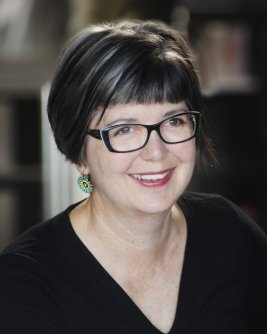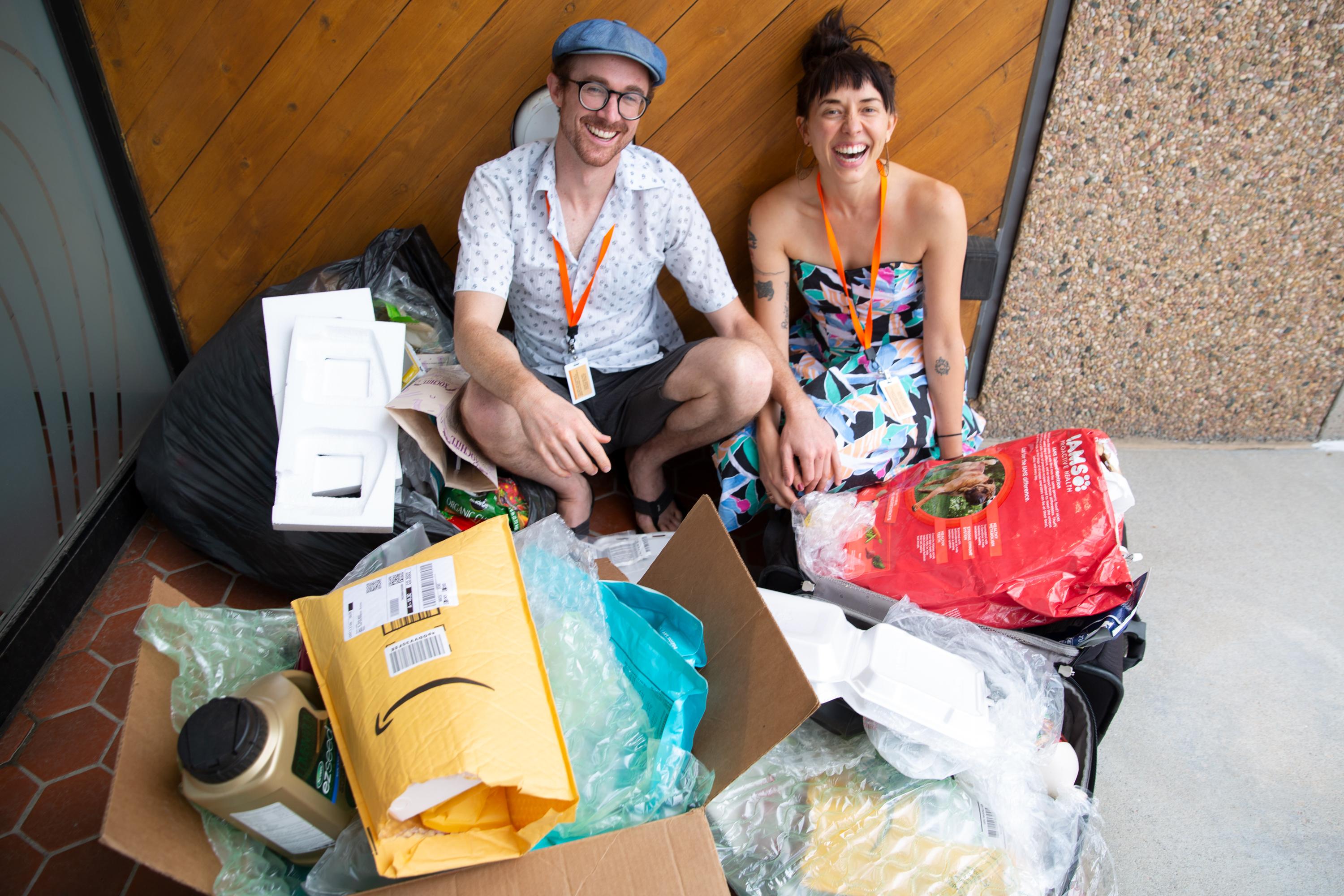
Erica Prather hates using plastic. She and her partner, Kevin Larkin, are on a mission to pare it down as much as possible. What they do use, they keep — on display in their home, as a reminder that plastic lasts pretty much forever.
It means they think twice about a lot of purchases.
“Obviously when you’re living with it, it’s like ‘Oh God, do I really want this? Do I really want this bag of chips?’ Because now I have to look at that bag for the rest of the year,” said Prather, who recently moved from Colorado to Arizona.
This is the kind of stuff Jackie Elder of Bailey wonders about, and she wrote to Colorado Wonders to ask for help on how to limit plastics.
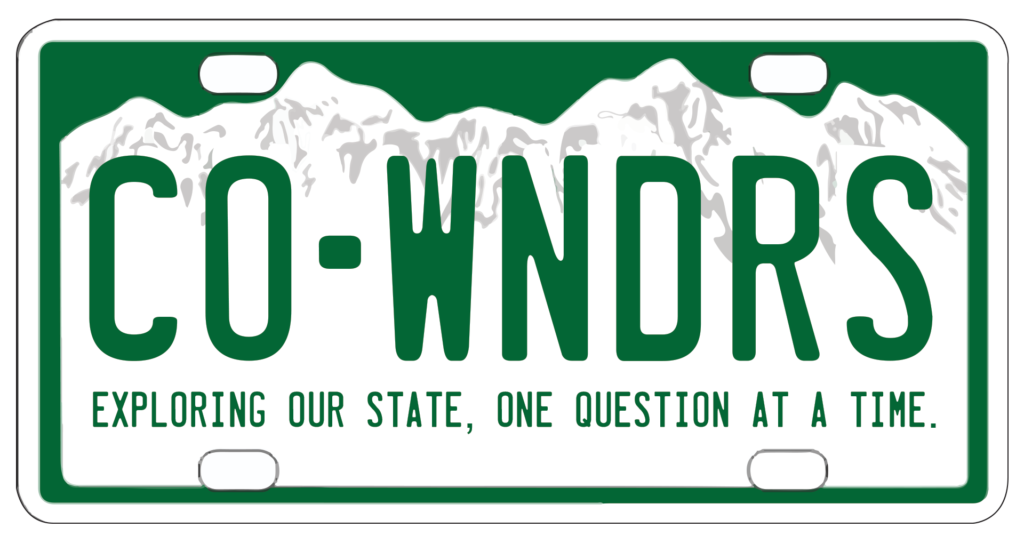
“There are so many news stories right now about how plastic is on the tops of mountains. It’s at the bottom of the ocean, it’s literally raining plastic in Colorado and it feels inescapable,” Elder said.
So we brought them together, and Prather showed up with all the plastic she and Larkin have used this year. It’s contained in one suitcase, a large box and a large trash bag.
She calls it her “Pile of Petroleum Past.”
Prather said there are daily challenges when you are trying to eliminate plastic from your life. They buy in bulk when they can, shopping at one of a handful of bulk-oriented stores. They buy things in glass containers and re-use them for other products at the bulk store. And it’s certainly not convenient.
“Sometimes we go to a party and someone hands you a plate of food and then you have to take (the empty plate) with you in your bag,” Prather said.
They make things at home rather than buying, though some things are decidedly harder for that.
“We got a dog within the last year and that’s actually a horrible conundrum,” Prather said.
Dog food may look like it’s in a paper bag but the inner lining is infused with plastic.
“You cannot really improve that unless you make your own dog food,” she said.
Prather doesn’t expect to eliminate every bit of plastic. There are some trade-offs. Like the time when Larkin pointed out the large organic maple syrup at Costco in the plastic bottle cost about half the price of the smaller glass container of syrup. The plastic version won.
But in the end, there are some things she just won’t buy, like fresh berries packed in plastic boxes.
This approach often costs more than buying traditionally packaged goods. Prather knows she’s privileged to shop this way. That’s part of why she keeps the plastic on display.
“I didn’t want to throw it away because I wanted to know what it was like to live with my own trash,” Prather said. “If I’m not living with it, someone else is living with it. . . whether it’s being incinerated or in a landfill or ... wildlife is living with it in their belly.”
Jackie Elder is impressed.
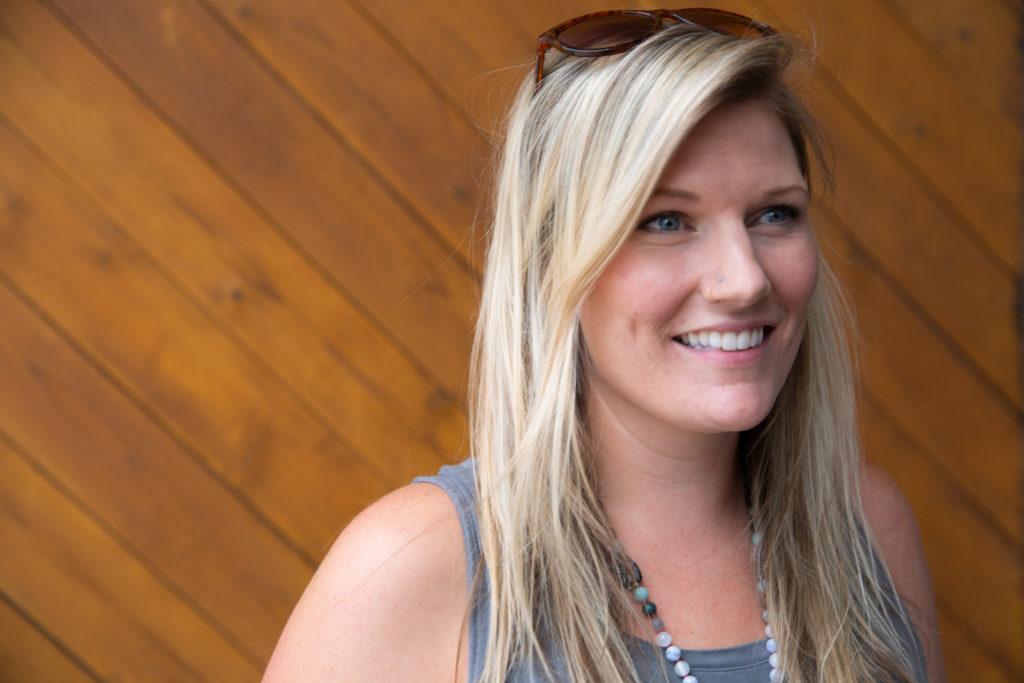
In recent years she’s shifted her diet and product consumption with an aim to be more environmentally friendly.
“I’ve been awakening to the fact that everything that’s in my home and everything I’m spending money on is a choice that I’m making and I’m changing the world in that little tiny itty bitty way, and plastic is the next step in that evolution,” Elder said.
Prather recommends three websites that are particularly helpful: Story of Stuff, My Plastic Free Life and Plastic Pollution Coalition.
For all Prather’s efforts, she thinks the problem of plastic — a petroleum-based product — is so big that consumers alone can’t solve it.
“Ultimately this is about the fossil fuel industry,” she said. “I don’t think we can have this conversation without talking about the corporate accountability piece because that’s. . . what’s going to make the biggest shift.”
Jack Buffington, an adjunct professor of supply chain management at the University of Denver and the Director of Plant Logistics for the MillerCoors Brewing Company, agrees. His new book is “Peak Plastic: The Rise and Fall of Our Synthetic World.” He estimates a century of using plastic products has left 8.3 billion tons of waste, an amount equal to 25,000 Empire State buildings.
Buffington notes that about 7 to 9 percent of plastics are recycled worldwide. But the amount produced and consumed is growing by 9 percent.
“All we’re doing is treading water,” Buffington said. “Given the size of the problem and the growth of plastic, we need bigger solutions.”
The key to turning the tide, he said, is for companies to develop a “closed-loop” system for plastics. Think of the aluminum can. Everything in it can be turned into more aluminum cans or other products, at a lower cost than manufacturing from scratch, so there’s a built-in incentive to collect and reuse cans.
Plastic is more complex than aluminum in terms of breaking it down for re-use, Buffington said. “But the good news is that there’s emerging technology to be able to change that.”
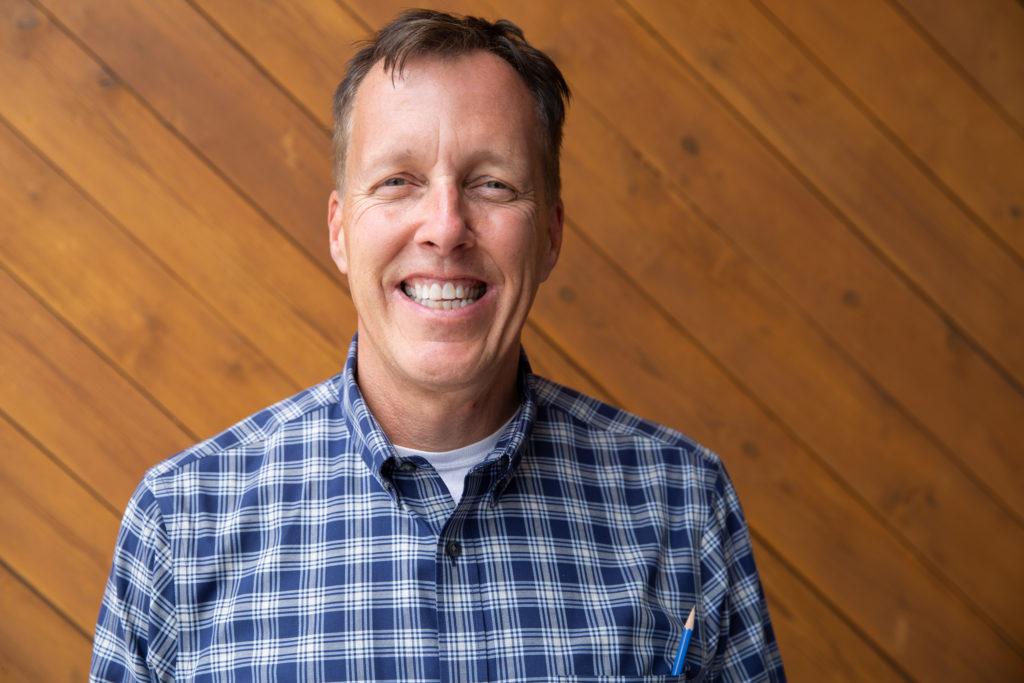
“My thought is take the plastic we already have in existence since we already have trillions of dollars of plastic in landfills and oceans, let’s create a closed-loop system,” he said.
He knows that it will require massive changes. First, take the work being done in labs and scale it up to serve industries. And second, the supply chain that manages packaging and products would have to shift too.
But he thinks the pressure to make these changes is building significantly.
He’s worked with consortiums examining the problem that include consumer product companies and oil companies.
“I think all of these companies understand the magnitude of the problem,” he said. “And if they don’t solve it, someone else is going to solve it for them, so another innovator is going to come in and they’re going to lose market share.”
While Prather and Elder are doing their part on a small scale to cut the use of plastics, the major work to deal with the global "Pile of Petroleum Past" is the job of major companies in the fossil fuel and packaging industries.
What do you wonder about plastics? Ask us a question via Colorado Wonders and we'll try to find the answer.
